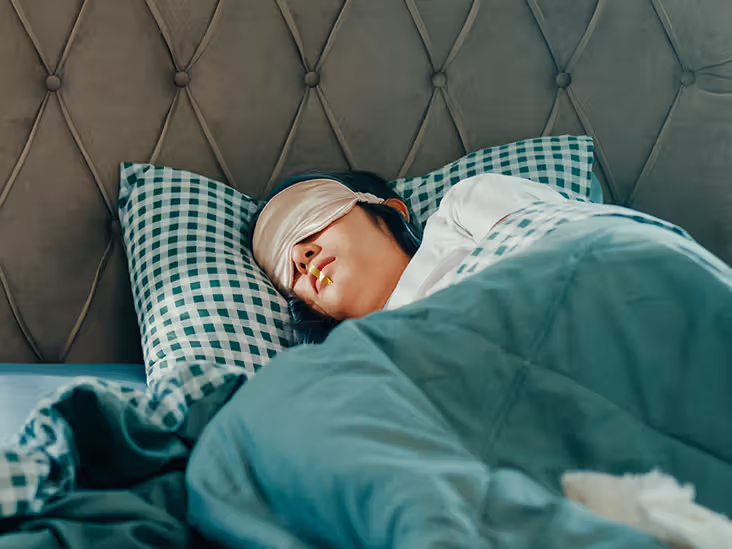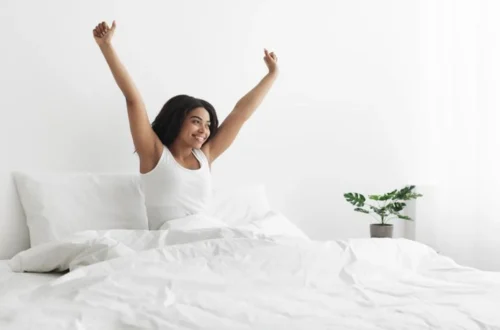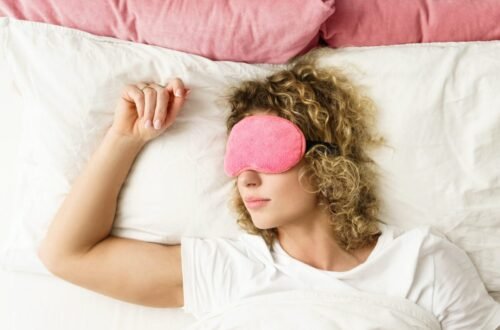Why Sleep Quality Matters
Sleep isn’t just about closing your eyes and drifting off—it’s the foundation of your health, mood, and productivity. Poor sleep can leave you groggy, stressed, and even prone to serious health issues like heart disease. Embracing the habits of good sleepers can transform your nights and supercharge your days.
The Science Behind Great Sleep
Good sleepers don’t just luck into restful nights; they follow consistent practices backed by science. Sleep experts, like those at the National Sleep Foundation, emphasize that quality sleep involves both duration and depth. By adopting these seven habits, you can align your routine with your body’s natural rhythms for better rest.
Understanding Your Sleep Cycle
Your body follows a circadian rhythm, a 24-hour clock that regulates sleep and wakefulness. Good sleepers sync their habits with this cycle, ensuring deep, restorative sleep stages like REM and slow-wave sleep. This alignment boosts energy and mental clarity.
The Impact of Poor Sleep
Chronic sleep deprivation can lead to mood swings, weakened immunity, and even weight gain. I learned this the hard way during a stressful work project when my late-night scrolling left me exhausted and irritable. Good sleep habits are a game-changer for avoiding these pitfalls.
Habit 1: Stick to a Consistent Sleep Schedule
Good sleepers go to bed and wake up at the same time every day, even on weekends. This consistency reinforces your body’s circadian rhythm, making it easier to fall asleep and wake up refreshed. Aim for 7-9 hours of sleep, as recommended by the CDC.
How to Set a Sleep Schedule
Choose a bedtime that allows for enough rest and stick to it, even if it means saying no to late-night Netflix. I started setting a 10 PM bedtime and noticed I felt sharper within a week. Use alarms for both bedtime and wake-up to stay on track.
Habit 2: Create a Relaxing Bedtime Routine
A calming pre-sleep routine signals to your brain that it’s time to unwind. Good sleepers avoid screens and opt for activities like reading or stretching. This habit reduces stress and prepares your body for restful sleep.
Ideas for a Bedtime Routine
- Read a Book: A light novel or nonfiction can ease your mind.
- Practice Meditation: A 5-minute mindfulness session can lower stress.
- Take a Warm Bath: Relaxes muscles and promotes calmness.
- Journal: Jot down thoughts to clear your mind before bed.
Habit 3: Optimize Your Sleep Environment
Your bedroom should be a sleep sanctuary—cool, dark, and quiet. Good sleepers invest in blackout curtains, comfortable bedding, and white noise machines to block distractions. A well-designed sleep space can make falling asleep feel effortless.
Tips for a Sleep-Friendly Bedroom
Keep your room at 60-67°F, the ideal temperature for sleep, according to the National Sleep Foundation. Use a supportive mattress and pillows, and banish electronics. My noisy neighbor’s dog taught me the value of a good white noise machine!
Habit 4: Limit Screen Time Before Bed
Blue light from phones and laptops suppresses melatonin, the hormone that regulates sleep. Good sleepers avoid screens at least an hour before bed, opting for low-tech wind-down activities. This habit helps you fall asleep faster and sleep deeper.
Alternatives to Screen Time
Try listening to a podcast, doing light yoga, or sipping herbal tea. I swapped late-night scrolling for a paperback and noticed I drifted off faster. Apps like f.lux can also reduce blue light if you must use devices.
Habit 5: Watch What You Eat and Drink
Good sleepers are mindful of their diet, avoiding heavy meals, caffeine, and alcohol close to bedtime. These can disrupt sleep by causing indigestion or stimulating your system. Timing your meals and drinks is key to restful nights.
Foods and Drinks to Avoid
- Caffeine: Skip coffee or tea after 2 PM.
- Heavy Meals: Eat dinner at least 2-3 hours before bed.
- Alcohol: Limits deep sleep despite initial drowsiness.
- Sugary Snacks: Can spike energy levels, keeping you awake.
Habit 6: Stay Active During the Day
Regular exercise improves sleep quality by reducing stress and tiring your body naturally. Good sleepers aim for 30 minutes of moderate activity, like walking or yoga, most days. However, avoid intense workouts close to bedtime to prevent overstimulation.
Best Exercises for Sleep
A brisk morning walk or an evening stretch session can work wonders. I started cycling three times a week and found I slept like a log. Studies from the Sleep Research Society show exercise can cut the time it takes to fall asleep in half.
Habit 7: Manage Stress and Anxiety
Good sleepers use stress management techniques to quiet their minds before bed. Chronic stress can keep you tossing and turning, so practices like meditation or deep breathing are essential. These habits help you relax and sleep more soundly.
Stress-Reducing Techniques
- Deep Breathing: Try the 4-7-8 method to calm your nervous system.
- Progressive Muscle Relaxation: Tense and release muscles to ease tension.
- Gratitude Journaling: Write down three things you’re thankful for.
- Mindfulness Apps: Tools like Calm or Headspace guide relaxation.
Comparing Sleep Habits: Good Sleepers vs. Poor Sleepers
| Habit | Good Sleepers | Poor Sleepers |
|---|---|---|
| Sleep Schedule | Consistent bedtime and wake-up | Irregular, varying by day |
| Bedtime Routine | Calming activities like reading | Screen time or stimulating tasks |
| Sleep Environment | Cool, dark, quiet bedroom | Cluttered, bright, or noisy space |
| Screen Time | Limited 1-2 hours before bed | Heavy use up to bedtime |
| Diet | Light meals, no caffeine late | Heavy meals, late coffee or alcohol |
Pros of Good Sleep Habits
- Improved mood and energy levels.
- Better focus and productivity.
- Reduced risk of health issues like obesity or diabetes.
- Enhanced immune function and recovery.
Cons of Poor Sleep Habits
- Increased stress and irritability.
- Higher risk of chronic diseases.
- Poor cognitive performance and memory.
- Weakened physical health and immunity.
People Also Ask (PAA) Section
What habits improve sleep quality?
Consistent schedules, relaxing routines, and a sleep-friendly environment are key. Limiting screens, watching diet, exercising, and managing stress also boost rest.
How can I fall asleep faster?
Create a calming bedtime routine, avoid screens, and try relaxation techniques like deep breathing. A consistent schedule also helps your body anticipate sleep.
What’s the best sleep environment?
A cool (60-67°F), dark, and quiet bedroom with comfortable bedding promotes sleep. Use blackout curtains and white noise to block distractions.
Can exercise help with sleep?
Yes, regular moderate exercise, like walking or yoga, improves sleep quality. Avoid intense workouts within 2-3 hours of bedtime to prevent overstimulation.
A Personal Sleep Transformation
A few years ago, I was a chronic insomniac, staring at my phone until 2 AM and dragging through my days. Inspired by a friend who swore by her sleep routine, I started small—setting a 10 PM bedtime and banning screens an hour before. Within weeks, I was sleeping deeper and waking up refreshed. It wasn’t magic; it was the power of good habits, and they changed my life.
Tools and Resources for Better Sleep
Best Tools for Tracking Sleep
- Fitbit or Apple Watch: Monitors sleep stages and duration.
- Sleep Cycle App: Tracks sleep patterns and wakes you gently.
- Oura Ring: Provides detailed sleep and recovery insights.
- SleepScore: Analyzes sleep environment and habits.
Where to Find Sleep Resources
- National Sleep Foundation: Offers tips at SleepFoundation.org.
- CDC Sleep Guidelines: Found at CDC.gov.
- Headspace: Guided meditations for sleep at Headspace.com.
Best Products for Sleep
- Blackout Curtains: Available on Amazon or Wayfair.
- White Noise Machines: Try the LectroFan from SleepSounds.com.
- Weighted Blankets: Brands like Gravity Blanket at GravityBlankets.com.
FAQ Section
Q: How many hours of sleep do I need?
A: Adults need 7-9 hours per night, per CDC guidelines. Individual needs vary, so listen to your body and aim for consistency.
Q: Why can’t I sleep even when tired?
A: Stress, screen time, or a poor sleep environment can keep you awake. Try relaxation techniques and limit blue light exposure before bed.
Q: Does diet affect sleep quality?
A: Yes, heavy meals, caffeine, or alcohol near bedtime can disrupt sleep. Eat light dinners and avoid stimulants after mid-afternoon.
Q: Are sleep apps effective?
A: Apps like Sleep Cycle or Headspace can track sleep and guide relaxation, but consistency in habits is key to long-term improvement.
Q: Where can I learn more about sleep hygiene?
A: Visit SleepFoundation.org or CDC.gov for expert tips and research-backed advice.
The Power of Good Sleep
Adopting the habits of good sleepers isn’t just about better nights—it’s about better days, sharper focus, and a healthier you. From sticking to a schedule to creating a cozy sleep sanctuary, these seven habits are your ticket to restful slumber. So, dim the lights, put down the phone, and let these tips guide you to the best sleep of your life. Sweet dreams!





